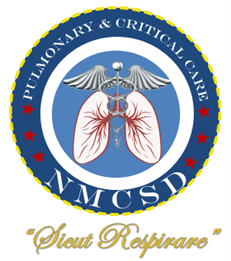UCSD PULMONARY ADVANCED LUNG DISEASE AND TRANSPLANT SERVICE
- Rotation Director: Gordon Yung, MD
- Rotation Location: UCSD Jacobs Medical Center
- Rotation Duration: One 4-week block
- Trainees/month: One
Educational Purpose and Rotation Description:
The UCSD Pulmonary Transplant rotation will allow the pulmonary/critical care fellow to gain expertise in all aspects of lung transplantation. The fellow will work as part of a team that includes cardiovascular surgeons, nurse coordinators, social workers, the pulmonary rehabilitation service, nutritionists, as well as pulmonary physicians. Both inpatient and outpatient management of adult male and female patients referred to UCSD is part of the experience. This elective involves (1) Initial evaluation of patients with chronic lung disease as potential candidates for lung transplantation; (2) Monitoring of patients during the waiting period; (3) Pulmonary consultation in the perioperative period; and (4) Long-term management of lung transplant recipients.
Rotation Objectives:
- Acquire knowledge of
- Natural history of chronic lung diseases
- Current treatment for chronic lung diseases
- Indications, selection criteria, and pre-operative assessment for lung transplantation
- Immunosuppressive regimens
- Complications associated with lung transplantation
- Establish competence in pulmonary techniques and procedures
- Selection and preparation of patients for lung transplantation
- Gain experience in:
- Management of advanced lung disease
- Lung transplantation selection and preparation
- Diagnosis and management of long term complications in transplant recipients
Learning Venues and Teaching Methods:
Direct Patient Care:
- UCSD
- NMCSD Pulmonary Clinic
Suggested Reading Material: CRC Press, 2016.
- Lung transplantation: principles and practice, edited by Vigneswaran, Wickii, Edward Garrity, and John Odell, CRC Press, 2016.
Evaluation:
The trainee will receive a written evaluation at the end of their rotation based on cognitive, patient management, procedural and humanistic skills. This evaluation, including areas for improvement, will be discussed personally with the trainee at the end of the rotation and then forwarded to the Program Director in the trainee’s permanent file.
